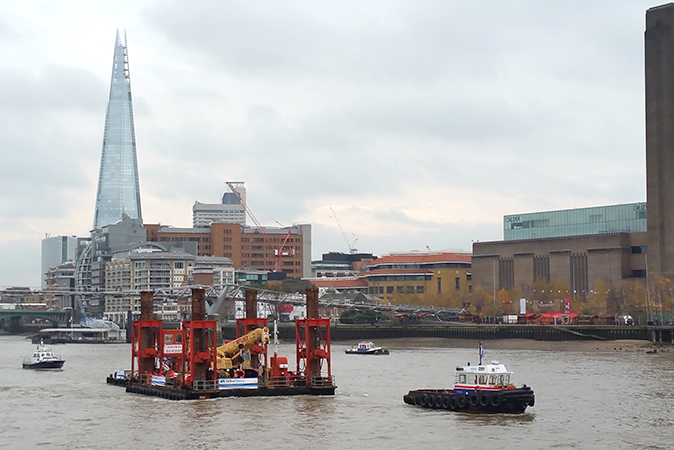
The Thames Tideway Tunnel is a much-needed addition to London’s sewer system, which was constructed in the 1860s. Though still functional, the network lacks the capacity to handle the demands of London’s growing population of eight million people. Currently, the system uses a network of low-level interceptor sewers that fill up quickly and overflow into the Thames River under heavy usage. Overflows used to occur a few times a year following heavy storms, but now they are a weekly occurrence triggered simply by heavy usage, not necessarily storms. As a result, almost 40 million tons of untreated sewage flows annually into the river, where it can remain for up to three months before the tide takes it out to sea.
The Thames Tideway Tunnel is expected to be the solution to this problem. It will divert the raw sewage away from the river via an underground tunnel that will run 65 meters below the river. The 25-kilometer tunnel will follow the route of the Thames River, eventually connecting to the Lee Tunnel, which will carry the wastewater to the Beckton Sewage Treatment Works. The Tunnel is designed to intercept the raw sewage before it even reaches the river, aiding in the restoration of the iconic waterway.
A team of workers began the project by positioning a crane-equipped barge near the Blackfriars Bridge. It was no easy feat to move the 20-meter-wide barge into place, and required perfect weather conditions and expert maneuvering by the construction crew. During transport, workers had to move the barge under seven bridges and through congested water traffic on one of the world’s busiest rivers. Now in position, the barge will aid in the construction of a pier that will be used in subsequent stages of construction. The Tideway Tunnel is expected to take up to seven years to build at a cost of approximately £4.2 billion.



